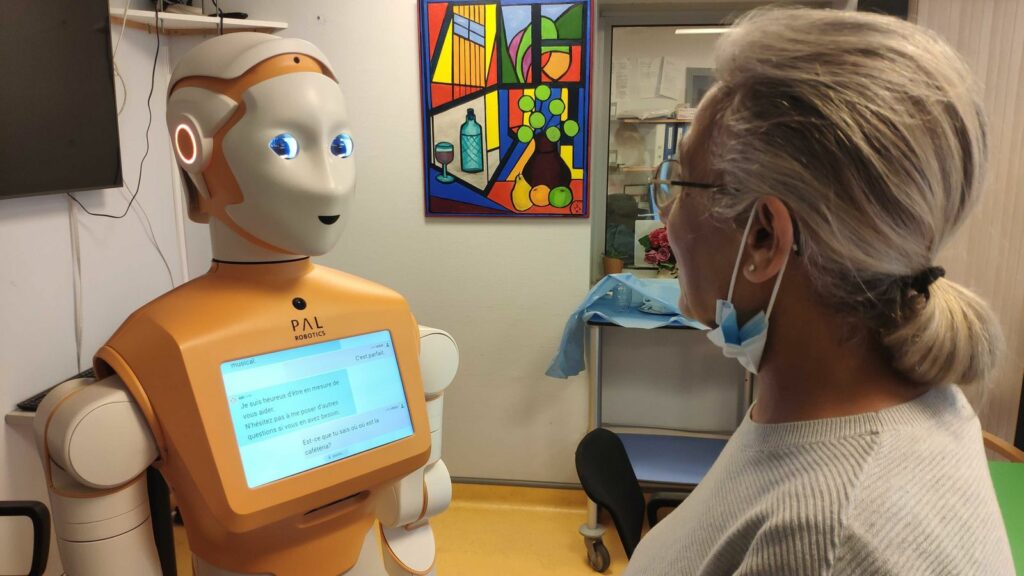Robots made to help elderly patients pass testing phase | Science & Tech News

Robots said to be capable of natural conversations and understanding patient needs have been tested successfully in healthcare environments.
The Spring (Socially Assistive Robots in Gerontological healthcare) units greeted patients, answered questions and gave directions during initial trials at Assistance Publique Hopitaux de Paris, in France.
The robots, equipped with artificial intelligence, were also able to understand conversations involving multiple people at the same time.
Researchers hope the robots – which also assist with routine tasks – can free up time for hospital staff as well as alleviate patient anxiety.
Professor Anne-Sophie Rigaud, head of department at the hospital, said “older adults” valued its “information and companionship” for patients with cognitive disorders.
“Our patients are increasingly interested in robotics and the evolution of hospital services, which they see as the logical evolution of our society,” she said.
“We believe that the ARI robot could in future become an essential element of patient care in hospitals, thanks to its capacity for social interaction and guidance.”
By carrying out simple but repetitive duties, robots also reduced potential physical contact between clinicians and patients as part of the trial.
The robot greeted patients. Pic: Assistance Publique Hopitaux de Paris/PA
Early feedback suggests the use of socially assistive robots may lower the risk of infection, while also boosting productivity of nurses and doctors.
The trial was conducted by staff from the Edinburgh-based National Robotarium, whose professor of AI said such rapid advances in technology “open up a world of possibilities for its positive impact”.
“One of the most significant contributions of robotics and AI is its ability to conserve resources and alleviate human workload,” Oliver Lemon added.
“The prospect of robots seamlessly collaborating with hospital staff to enhance the patient experience is now closer to reality.”
Read more:
Musk’s company implants brain chip in first human
Musk’s brain chip technology heralds the age of the cyborg
The National Robotarium – a partnership between Heriot-Watt University and the University of Edinburgh – is funded through the £1.5bn Edinburgh and South-East Scotland City Region Deal.
It is also supported with £300m in funding from the Scottish government and £300m from the UK government.
Recent Posts
- World of Hyatt and Headspace Launch New Series to Help Travelers Find A Good Night’s Sleep
- Influencers signed up as Abta kicks off pre-peaks promotion
- Peter Island Resort Set for December Debut in the British Virgin Islands
- PM Hotel Group Expands Washington, DC Area Portfolio With Management of Three Hotels
- A snowshoe hike in Bormio, the host of the 2026 Winter Olympics





Recent Comments